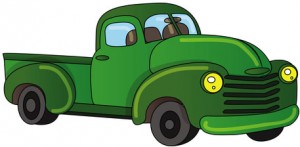 We (Edith Hope Fine and Judith Josephson) are the Grammar Patrol. Both of us taught for years and are now writers, with thirty plus books between us, including our two popular grammar guides, Nitty-Gritty Grammar and More Nitty-Gritty Grammar. For close to twenty years, we taught writing and grammar basics and now we blog about grammar for writers.
We (Edith Hope Fine and Judith Josephson) are the Grammar Patrol. Both of us taught for years and are now writers, with thirty plus books between us, including our two popular grammar guides, Nitty-Gritty Grammar and More Nitty-Gritty Grammar. For close to twenty years, we taught writing and grammar basics and now we blog about grammar for writers.
In October, we covered some hyphen basics. This month, more hyphen tips.
More Hyphen Uses

• With the names of compound numbers from 21–99 and written fractions:
thirty-three eighty-seventh five-eighths
six and two-thirds fifty-four and three-fourths
• With numbers showing age or time:
ten-year-old spelling champ 18- to 22-year-old undergraduates
two- to three-year period a 47-year marriage
• with highways and to designate aircraft:
I-805 F-16
Hyphens with Verbs, Nouns, Adjectives
• If you’re thinking “action,” skip the hyphen. Make most compound verbs two words.
Back up your computer documents.
Pick up your room.
• Link the words in compound nouns and adjectives, either as a single word or with a hyphen.
Take this offramp [noun] for the off-road [adjective] rally.
You can borrow my pickup [noun] to haul the manure.
Provide backup [noun] for the back-up [adjective] team.
(While most dictionaries list the noun backup as a single word, a few recognize back-up. Just don’t use the two-word verb “back up” when you mean the noun. Write “The spy called for backup” (or back-up), not “The spy called for back up.”
(You’ll find more on two-word verbs like these, called phrasal verbs, in More Nitty-Gritty Grammar, page 131, including a Calvin and Hobbes cartoon!)
